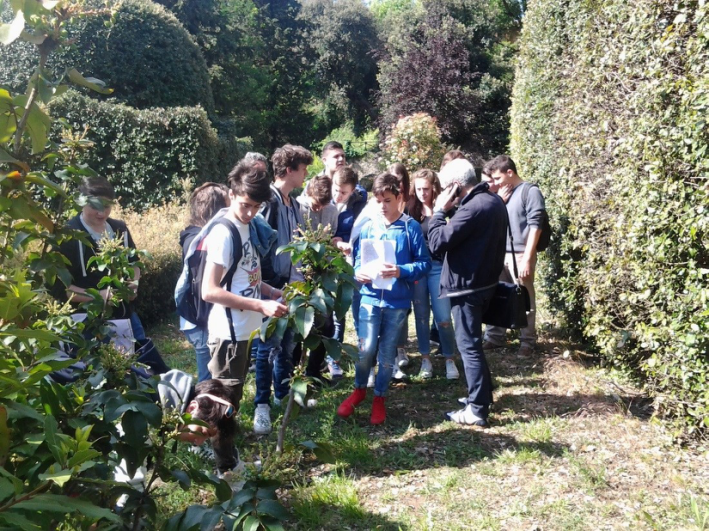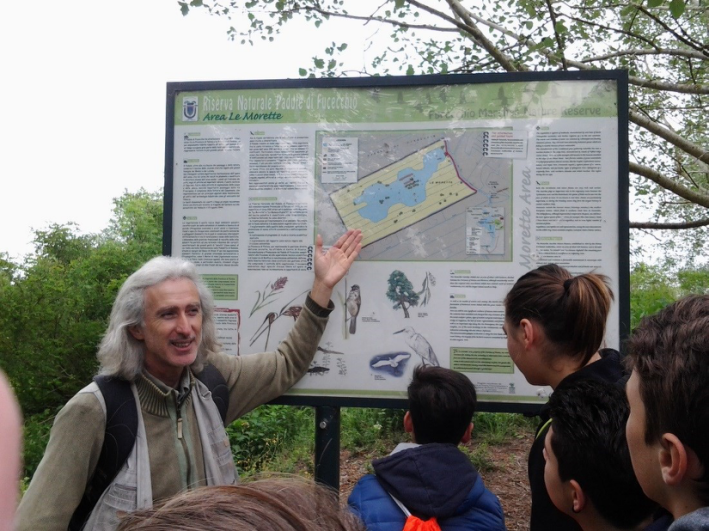Topic(s) addressed
The project’s main aim was to promote the knowledge of scientific subjects through a problem and inquiry-based teaching approach that was based on challenging students to build their own learning processes (beginning with the real world). Parallel to this, the project aimed to enable teachers to learn from teaching methods that place students at the centre of the learning process, exploit the potential of multidisciplinary approaches in education, and integrate ICT towards the enhancement of scientific teaching methods’ effectiveness and attractiveness.
Target groups
The project’s target group consisted of science and English teachers in secondary schools, with a total number of 110 Italian students also involved in the project. All participants attended Italian schools and were between the 14-19-age range.
Methodologies
The project involved a number of multidisciplinary approaches, consisting of chemistry (to illustrate how nature can be a stimulating open laboratory, which was very useful in the teaching of a large number of concepts); a set of e-lessons with biology as the main focus, for which a set of e-classes were planned in cooperation with teachers and students (with students playing the main role within a peer-to-peer environment), which resulted in a set of videos on the project’s portal that function as supporting material to “in house” classes; mathematical concepts (from simple ones such as spheres and symmetry to more complex ones such as Fibonacci spirals) that were illustrated through a set of nature-based activities; the integration of ICT into educational content that helps students acquire knowledge and skills, supports teaching and learning processes, enriches learning, and encourages interaction between teachers and students. Furthermore, while English was used as the main language in the implementation of all activities, the native languages of partner countries were also used to present, describe, and translate collected data. The project’s primary goal was to introduce learner-centred learning methods (considered non-traditional among secondary education schools), so as to involve students into learning activities that focus on the acquisition of skills rather than knowledge, and which allow them to succeed in mutual learning exchange with their peers. Traditional formal teaching was also enriched via cooperative, active, outdoor, peer, and e-Learning methods.
Environments
Many sectors of I.I.S. Enriques were involved in the project’s development: graphic design, cuisine and hotel management, technical courses, and most importantly, the agrarian sector, with a number of effective collaboration set up and developed with local authorities and organisations. Furthermore, many teachers, experts, and students participated in conferences that were held at the Institute, which returned highly positive feedback. Target groups’ schools contributed to the project’s development, reach, and effectiveness through their planned activities and their high level of interest into the project’s subject matter.
Teachers
Teachers applied their knowledge of cognitive psychology, and collaborated through the use of Web 2.0 possibilities, especially with regard to social networking and educational resources created by users. Learning was related to the application of ICT, with students treating it as a real and relevant part of everyday life. Thanks to the project, more teachers have been encouraged to choose less traditional methods of education, such as those that are problem-based, and case study-based learning. All of these methods revealed a typical focus on students (both gifted and slow-learning) and their activities, experience, initiatives, and consciousness. The development of new teaching styles was fostered by many resources (the most challenging of which were ICT and social networking), with a great number of applications created to provide an added impulse to ‘wilful’ learning.
Impact
The project has its own website and is kept alive through the documentation of events and activities on social media that are being carried out across a number of schools and organisations. Furthermore, it also led to the development of initial or in-service teacher training courses, which has enabled students, teachers, and experienced teachers from various countries to improve their teaching skills in a number of specific areas.
- Reference
- 2015-1-IT02-KA201-015133
- Project locations
- Italy
- Project category
- Secondary education
- Project year
- 2021
Stakeholders
Participants
Epimorfotiki Kilkis sm llc
- Address
- Greece
Fundaţia Euroed
- Address
- Romania
Initiatives pour une formation efficace asbl
- Address
- Belgium
Instituto Politécnico de Bragança
- Address
- Portugal
Limerick Institute of technology
- Address
- Ireland
PIXEL
- Address
- Italy
Trakų rajono savivaldybės pedagoginė psichologinė tarnyba
- Address
- Lithuania


